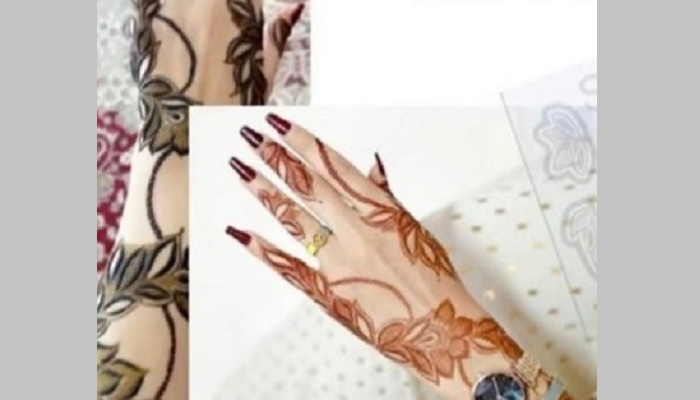
Muscat: Henna and cosmetics makers are finding ways to do good business during the on-going lockdowns, which has affected some of their main sources of revenue.
Many hairdressers and beauty parlours buy supplies such as henna, perfumes, and other cosmetics from manufacturers in the country.
But with these establishments often closed for large parts of the day, required to operate at reduced capacity, and facing a drop in customers because of concerns over catching COVID-19, the demand for such products has fallen.
Although women were unable to visit the salons, they still have to meet their cosmetic needs. This was when Maryam Al Essai decided to set up Meemz Stickers, which makes henna patches for customers.
“I began my project at the start of the pandemic, because I saw there were many women who were unable to go to the salons, but still needed certain cosmetic treatments,” said the native of Yanqul in Ad Dhahirah.
“They were afraid of going to the hairdressers. Because they needed to look after themselves at home, demand for my product was very high.”
“My profits have climbed to more than OMR250 a month, compared to what I used to earn before the pandemic,” she said.
“I have been able to earn the trust of many customers. Because so many of them spend their time browsing social media, I have gained success by promoting my products on these platforms as well.”
Another home business owner who took the initiative to start something of her own is Seham Saif Al Sabriya, from Wilayat Saham in North Batinah.
The 35-year-old decided to start Seham Beauty – which is named after her – and make incense, perfumes and natural cosmetics. People prefer her products to those available in stores because they are made from organic raw materials, and have a better smell compared to the ones found elsewhere.
“My cosmetics are 80 per cent comprised of natural ingredients,” explained the Sohar University graduate.
“People are starting to appreciate the value of goods that are more natural, because they are both effective and safe. In this case, they provide better results in colouring their hair, and solving their skin problems.
Some of the other cosmetics you find in the market are unfortunately made from chemicals and can harm your body with regular use.”
A factor that worked in Seham’s favour was easy access to time and space at her home. Naturally fond of making cosmetics, she used her previous experience, and her ambition to set up her own business to make sure her efforts were successful.
She also did a few online courses that helped her understand her customers’ needs, which helped her design her products accordingly.
“I made sure my products were priced so that everyone could benefit, and the courses I studied greatly added to my experience,” she said.
“As my income rose, my profits also increased, and I have seen a day-to-day increase in customer numbers, after I made greater efforts toward business promotion during the lockdown period.”
Seham now earns about OMR50 to 100 a day from her successful home business.
While some chose to start cosmetic businesses, another Omani woman, Aysha Al Badi, used her culinary skills to make stuffed vine leaves and other delicious traditional foods. Having learned cooking since she was a child, her lip-smacking dishes are very popular among other families.
“Many restaurants chose to close during the pandemic, so in my free time, I began cooking food in small quantities and distributed it to my family, friends, and relatives,” she recalled.
“Thanks to their support, my project saw expansion. At the start of the pandemic, when many people turned to home businesses, I saw an increase in customers as well.”
“Their confidence in my hygienic and delicious food saw many people ordering my delicious Omani foods, so my income has increased, compared to what it was before the lockdowns were first brought in,” she said.